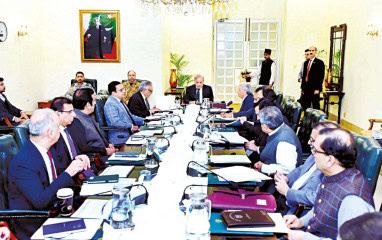KARACHI – Pakistani government is rolling out major reforms to ensure business transparency and financial monitoring, curb financial instability, supporting sustainable growth in the country of 242 million.
The new directives from apex tax collection agency Federal Board of Revenue of Pakistan FBR aimed at improving transparency and revenue collection by making debit and credit card payments mandatory for businesses, replacing cash transactions.
The latest move is part of Islamabad’s commitment to International Monetary Fund (IMF) and signals the government’s push toward digitizing the economy. Under new reforms, large businesses and tier-one retailers are required to install point-of-sale (POS) machines that are directly connected to the FBR’s computerized system.
This digital integration will allow authorities to have closer look at business transactions more efficiently and ensure greater accountability. Furthermore, CCTV surveillance will be used to oversee business operations, ensuring compliance with the new regulations and reducing the risk of tax evasion.
Transparency advocates reckon that digital payments can help reduce corruption and make financial transactions more traceable. The move comes at a time when financial transparency and accountability are key priorities for the government, which aims to increase the formalization of the economy.
The reforms mandate that all businesses connect to the FBR’s system, which will compile transaction data daily, weekly, and monthly. Any attempts to manipulate records will lead to strict legal actions. With the introduction of electronic invoices stored for six years, the government aims to further strengthen the transparency of business transactions.



















